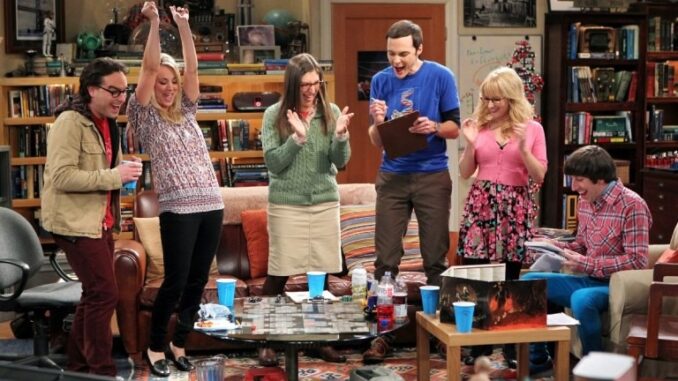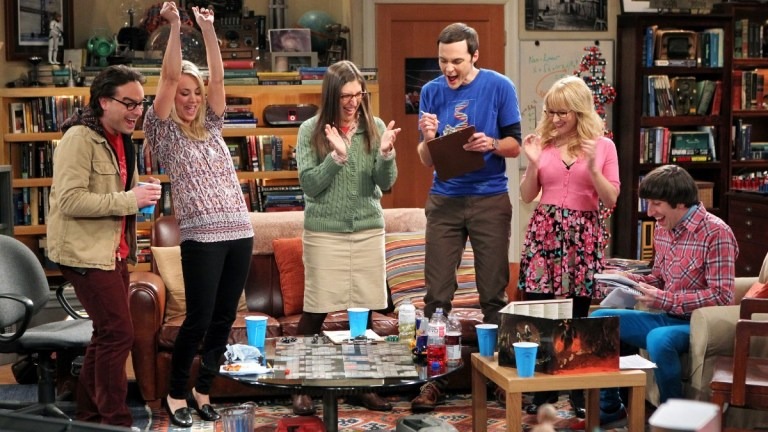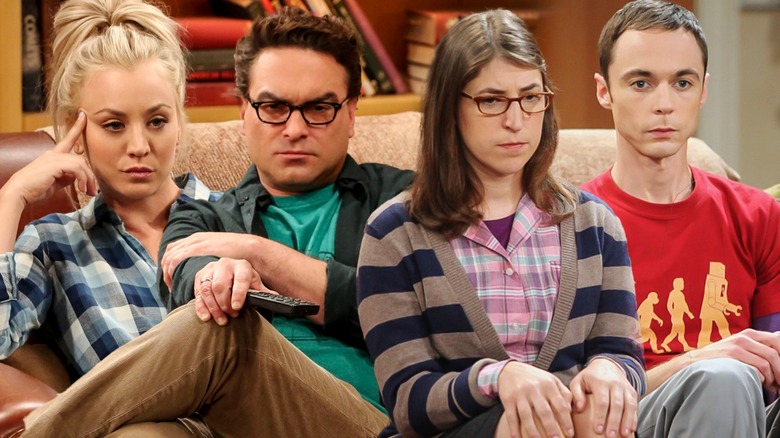
CBS struck gold with “The Big Bang Theory,” a sitcom about a group of Caltech scientists who are capable of understanding the most complicated academic theories but who lack the social and emotional intelligence to back up their brain power. After they were first introduced, Sheldon Cooper (Jim Parsons) and his friends managed to charm audiences enough to bring in big viewing numbers and remain on the air for over a decade. By the time the show ended, “The Big Bang Theory” had aired an impressive 279 episodes, which were released over the course of 12 seasons between September 24, 2007 and May 16, 2019.
Created by Bill Prady and sitcom legend Chuck Lorre, “The Big Bang Theory” became one of the most popular sitcoms during the modern golden age of television. A network show that managed to hang on for roughly 12 years and thrive despite the surging popularity of streaming services during its run, “The Big Bang Theory” represents one of the last examples of appointment TV as audiences used to experience it. And despite launching less than two months before the 2007 Writers Guild strike, the show persevered and avoided an early cancellation.

The Big Bang Theory exploded into being
The pilot episode of “The Big Bang Theory” introduced physicists Leonard Hofstadter (Johnny Galecki) and Sheldon Cooper, who struggle to contain themselves when they learn an attractive blonde woman named Penny (Kaley Cuoco) has moved into their building. Season 1 featured 17 episodes, and by the 2nd and 3rd seasons, the show had expanded to 23 episodes. From Season 4 onward, the series was extended to include 24 episodes per season. The series ends with a two-part finale, which sees Sheldon and his wife Amy (Mayim Bialik) win the Nobel Prize. Meanwhile, Leonard and Penny share that they are expecting their first baby.
“The Big Bang Theory” was certainly successful enough to be renewed for a 13th season, but that never ended up happening. According to the book “The Big Bang Theory: The Definitive, Inside Story of the Epic Hit Series” (as reported by BuzzFeed), Jim Parsons made the decision not to proceed with the series after the show’s 12th season, and in turn, the producers decided the show could not continue without Parsons. He was eager to move on to different career opportunities, but his decision resulted in some tension among the cast members — especially co-stars Cuoco and Galecki. Ultimately, the cast decided to put those feelings aside to get as much as they could out of their final season together.
Dumb Reasons These TV Shows Were Canceled
We all love TV, and we’ve all got lists of our favorite shows — including the ones that, whether it was because of low ratings or other outside factors, ended up getting their plugs pulled and leaving the airwaves before we were ready to see them go. Regardless of your favorite genres, every television fan eventually grows accustomed to the pain of seeing their favorite series canceled, and we’ve all seen shows die because of the usual ratings, budget, or cast problems. Sometimes, though, the plug gets pulled for reasons that were totally avoidable—and sometimes even downright dumb. We’ve taken a look back into TV history and rounded up a list of some of the most senseless cancellations networks ever committed to — and even if you’re a hardcore television fan, the inside stories of some of these show endings may surprise you. Here’s everything you need to know about the dumb reasons TV shows were canceled.

Kingdom Hospital vs. CSI
Few places are scarier than hospitals, so when horror maestro Stephen King made a deal with ABC to write and produce the haunted medical drama Kingdom Hospital, it seemed like fright fans could be in for a classic in the making. Sadly, the show’s sole season was kind of a mess—not on the screen, where it turned out a solid batch of episodes that earned a handful of Emmy nominations, but behind the scenes, where struggles between King and the network doomed its odds of renewal. Convinced ABC wasn’t doing enough to promote Kingdom Hospital, King went out of pocket for a print ad campaign, only to see his efforts foiled when execs bumped the show to a different timeslot. No stranger to Hollywood turmoil, King learned yet again that while ghosts are scary, what’s truly terrifying is trying to put together a hit TV series.
Freaks and Geeks’ writers wouldn’t betray the show’s premise
Freaks and Geeks is among the most beloved cult TV shows of all time. Airing on NBC during the 1999-2000 season, it’s one of the few high school series to focus on the kids at the social fringes—in other words, the freaks and geeks.
For the dramedy, set in 1980, creator/writer Paul Feig and executive producer/writer Judd Apatow pulled from their own awkward upbringings to create a show that was emotionally honest and highly relatable, but Freaks and Geeks was never a ratings hit, and NBC canceled it after 12 episodes.